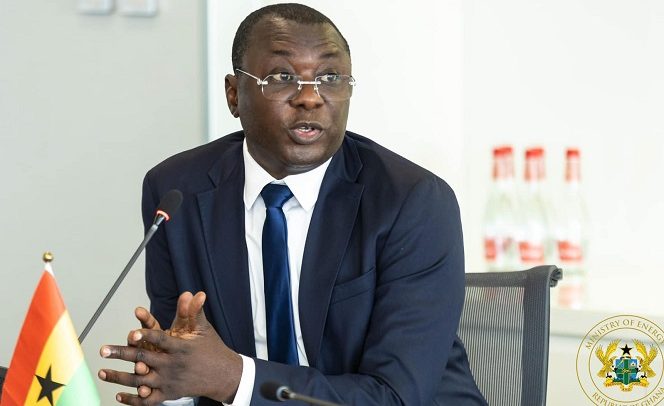Dr. Mohammed Amin Adam
In a bid to address the pressing financial challenges plaguing the energy sector and mitigate recent power outages across the country, the government has signaled its intention to reach an agreement with Independent Power Producers (IPPs) on debt restructuring.
The move is seen as a crucial step towards reducing the deficit in the energy sector, as highlighted by Dr. Mohammed Amin Adam, the Finance Minister.
Speaking at a press briefing following Ghana’s participation in the International Monetary Fund (IMF)/World Bank Group (WBG) Spring Meetings in Washington, US, Dr. Amin Adam emphasized the need to tackle the energy sector’s financial woes.
He underscored the significance of renegotiating with IPPs to restructure the accumulated debt, pointing out that this initiative would play a pivotal role in alleviating the debt overhang and shortfall.
Dr. Amin Adam expressed optimism that the negotiations with IPPs would yield tangible results within the coming month, signifying progress towards reducing the sector’s financial burdens and striving for long-term sustainability in alignment with the Energy Sector Recovery Programme.
The Finance Minister highlighted the ongoing efforts to address the US$1.9 billion energy sector financing gap, emphasizing the government’s commitment to navigating through challenges to bolster sector sustainability. Various reforms, including the implementation of the Energy Sector Recovery Programme since 2019 and the renegotiation of IPPs agreements to cut generation costs, have been instrumental in streamlining operations and enhancing financial resilience.
Additionally, plans are in motion to procure one million revenue-efficient meters through a partnership with the World Bank under a Programme-for-Result scheme. This strategic initiative aims to enhance revenue generation and optimize operational effectiveness within the energy sector.
Meanwhile, the Institute for Energy Security (IES) has called upon the Energy and Finance Ministries to collaborate effectively and allocate the necessary resources to address the prevailing energy sector challenges. The IES emphasized the importance of supporting the Electricity Company of Ghana (ECG) to reduce technical and commercial losses through initiatives such as deploying smart meters and enhancing the distribution system.
Nana Amoasi VII, Executive Director of IES, emphasized the critical role of investing in efficient technologies and infrastructure to realize ECG’s mission of delivering quality, reliable, and safe electricity services to drive economic growth and development.
Amidst these developments, the government’s proactive approach towards resolving energy sector bottlenecks and fostering financial stability is poised to yield long-term benefits for both the industry and consumers in Ghana.
By Vincent Kubi


